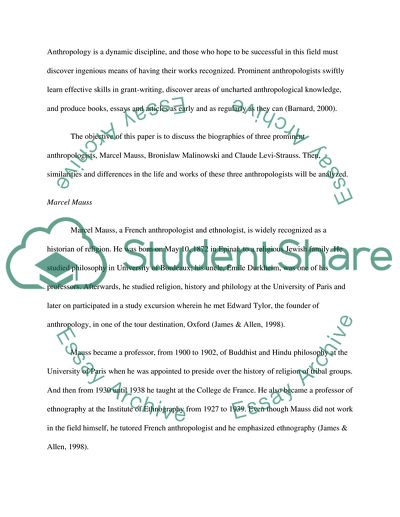Cite this document
(“Mauss, Malinowski and Levi-Strauss: The Profession of Anthropology Essay”, n.d.)
Retrieved from https://studentshare.org/anthropology/1558151-career-biographies-of-3-anthropologies-see-order-instructions
Retrieved from https://studentshare.org/anthropology/1558151-career-biographies-of-3-anthropologies-see-order-instructions
(Mauss, Malinowski and Levi-Strauss: The Profession of Anthropology Essay)
https://studentshare.org/anthropology/1558151-career-biographies-of-3-anthropologies-see-order-instructions.
https://studentshare.org/anthropology/1558151-career-biographies-of-3-anthropologies-see-order-instructions.
“Mauss, Malinowski and Levi-Strauss: The Profession of Anthropology Essay”, n.d. https://studentshare.org/anthropology/1558151-career-biographies-of-3-anthropologies-see-order-instructions.


